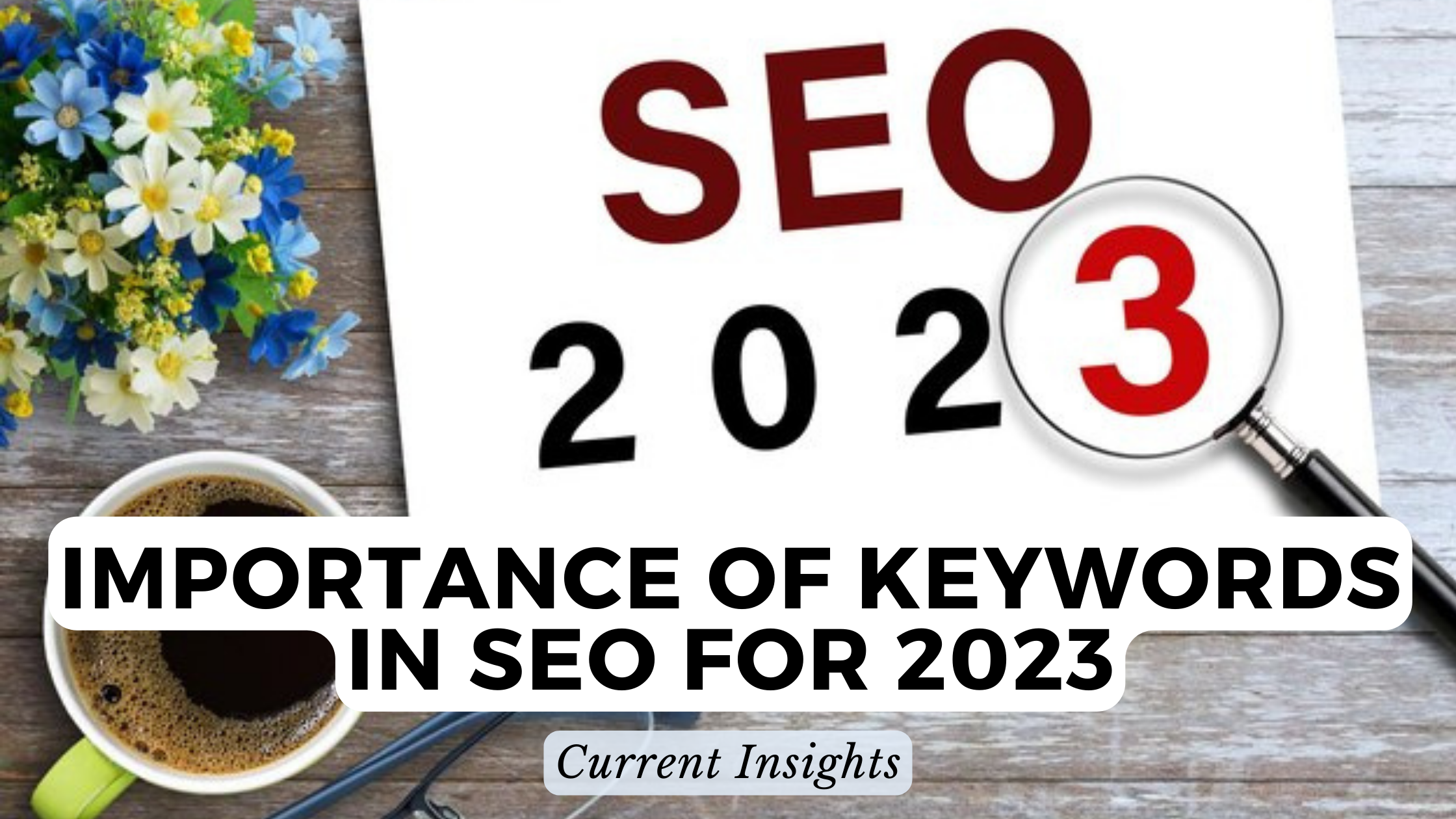Importance of Keywords in SEO for 2023: Current Insights
- Data as a Service (DaaS) Software Marketing & Analytics


Importance of Keywords in SEO for 2023: Current Insights
In the ever-evolving landscape of SEO, the significance of keywords remains a focal point. As we delve into 2023, it’s imperative to understand the current insights into the importance of keywords for effective search engine optimization. Explore the dynamic world of SEO strategies and discover SaaS products that can elevate your keyword game.
The Evolving Role of Keywords in SEO
Keywords have long been the backbone of SEO strategies, guiding search engines to understand the content’s relevance. Despite the advancements in algorithms, the importance of keywords persists, albeit with nuances. Let’s uncover key insights shaping the use of keywords in 2023.
- Semantic Search and Contextual Relevance: Search engines have evolved to understand not just the literal meaning of keywords but also the context in which they are used. Semantic search now plays a crucial role, focusing on the intent behind the search rather than the specific keywords. Businesses need to prioritize creating content that provides valuable information and context around target topics.
- Long-Tail Keywords for Precision: Long-tail keywords, comprising longer and more specific phrases, are gaining prominence. Users are increasingly relying on conversational and detailed queries, and optimizing for long-tail keywords allows businesses to capture more targeted and qualified traffic. This shift emphasizes the importance of understanding user intent and crafting content that directly addresses specific queries.
- User Experience Signals in Rankings: Search engines are placing greater emphasis on user experience signals, such as page load speed, mobile responsiveness, and overall website usability. While keywords remain crucial, the overall quality of the user experience is becoming a significant ranking factor. Businesses should prioritize creating a seamless and user-friendly website to complement their keyword strategies.
- Voice Search Optimization: With the rise of voice-activated devices, optimizing for voice search is becoming imperative. Voice searches are often more conversational and question-based, influencing the way keywords are integrated into content. Businesses should consider how users speak rather than type and tailor their content to align with natural language patterns.
- Entity-Based SEO: Search engines now understand entities, which can be people, places, or things. Rather than focusing solely on keywords, businesses should embrace entity-based SEO, connecting relevant concepts and topics within their content. This approach enhances the overall context and relevance of the information presented.
- Intent-Centric Content Strategies: The emphasis on user intent requires a shift towards intent-centric content strategies. Businesses should align their content with the various stages of the buyer’s journey, providing valuable information that meets user needs at each phase. This approach not only satisfies user intent but also contributes to higher rankings.
- Dynamic Keyword Research: The landscape of user queries is constantly evolving. Dynamic keyword research, involving regular analysis and adaptation to changing search trends, is crucial. Businesses should leverage tools and analytics to identify emerging keywords, topics, and user behaviors, ensuring their content remains relevant and discoverable.
- AI and Machine Learning Impact: The integration of artificial intelligence (AI) and machine learning into search algorithms is transforming how keywords are processed. These technologies enable search engines to understand user behavior, preferences, and context more effectively. Businesses should be aware of these advancements and stay adaptable to algorithm changes.
Related SaaS Products
1. SEMrush
SEMrush is an all-in-one SEO toolkit that goes beyond keyword research. With features like competitor analysis, site audit, and backlink tracking, it offers a comprehensive solution for optimizing your online presence. Leverage SEMrush to explore the current landscape of keywords and stay ahead in your SEO game.
2. Ahrefs
Ahrefs is a powerful tool for keyword research and backlink analysis. Its extensive database provides valuable insights into the keywords your competitors are targeting. Stay competitive by understanding the keyword landscape with Ahrefs’ robust features.
3. Moz Pro
Moz Pro offers a suite of SEO tools, including keyword research, site audits, and rank tracking. In 2023, understanding the intent behind keywords is crucial. Moz’s tools can help you align your content with user intent, a pivotal aspect of modern SEO.
4. Google Trends
For real-time insights into keyword popularity, Google Trends is an invaluable resource. In 2023, staying updated with trending keywords is essential for creating timely and relevant content. Google Trends aids in identifying topics that matter to your audience.
5. AnswerThePublic
As search engines prioritize user intent, AnswerThePublic helps you decipher questions users have related to your keywords. This tool provides insights into the type of content your audience is actively seeking, allowing you to tailor your SEO strategy accordingly.
Conclusion
In conclusion, keywords continue to play a pivotal role in SEO strategies for 2023. Embrace the evolving landscape by leveraging advanced tools to refine your keyword research and content optimization efforts.
Unlock exclusive deals on essential SaaS tools, including SEMrush, Ahrefs, and Moz Pro, with Subscribed.FYI Deals. Sign up today to elevate your SEO game and enjoy significant savings on your SaaS stack.
Relevant Links:








